 I continue to be flabbergasted (that’s the polite way of putting it) by the attempts of Churches to ‘apologise’ to LGBTIQ+ people whilst continuing to ignore our voices, maintaining shame, and hurting us afresh. The latest astonishing ‘apology’ is by the General Synod of the Anglican Church in Australia - actually ’deploring’ activity which it had itself just demonstrated. NO - this kind of ‘apology’ is not acceptable and represents a mockery of the deep understanding of costly repentance and reconciliation in the Christian tradition. Meanwhile, the Uniting Church - with more credibility but with significant holes in its LGBTIQ+ ‘inclusion’, including a current low level of trans awareness and engagement - has also been pursuing an apology process. This is a much better concept but one in which no transgender people have been included in the ‘apology’ group! (so there’s a first apology to make) A few obvious starters therefore for such ventures: * ‘Nothing about us without us’ * Cheap grace betrays the Gospel * Reparations matter
0 Comments
It was wonderful to see photos of good friends and other people from across my old Diocesan community gathered with Elders and other First Nations community leaders at St John's Cathedral, Brisbane after the launch of the second Innovate Reconciliation Action Plan with which I was involved.. The gathering commenced with Yuggera Traditional Owners welcoming to their Country, dancing and carrying out a smoking ceremony on the grassy Cathedral grounds. Following this, community members processed into the Cathedral where the Reconciliation Choir sang and RAP Working Group Chair and Wakka Wakka priest The Rev’d Canon Bruce Boase gave an address, before introducing Archbishop Phillip Aspinall and respected Elder speakers, including Wangan Jagalingou Elder The Rev’d Aunty Alex Gater, Saibai Elder Aunty Dr Rose Elu, Kabi Kabi Elder Professor Boni Robertson and RAP Coordinator and Quandamooka Bundjalung Elder Aunty Sandra King. Following a moving time of truth telling and story sharing, fellowship over afternoon tea was enjoyed, with refreshments provided by First Nations caterer Three Little Birds Events. With thanks to all those who gathered in person and online to officially launch the RAP, as the journey in Reconciliation together continues. Visit the ACSQ website to explore our new Innovate RAP, which particularly embraces stronger procurement and recruitment strategies to support and engage with our First Nations peoples and endorsement of The Uluru Statement from the Heart: https://bit.ly/3r3DR8i.
a reflection on the journey to genuine 'inclusion' for the Diversity & Inclusion Council of Uniting NSW/ACT
Thank you so much for the opportunity of sharing with you today. Let me first acknowledge the Gadigal peoples of the land from which I speak, and their elders past, present and emerging. I would also like to express my thanks for the work Uniting is already doing in terms of diversity and inclusion, including the vital encouragement this is to myself personally. For genuine visibility of our human diversity is so critical and enriching, as I know from my own experience and the huge number of people who contact me, from all kinds of places. joyfully receiving gifts One of the things I have learned from First Nations peoples is the importance of genuineness of spirit and intent. Back in 1986 in Alice Springs, Pope John Paul II put this well in sharing with Aboriginal and Torres Strait Islander peoples. ‘Until your gifts have been offered’, he said, ‘and joyfully received, the Church in Australia will not be that which Jesus Christ wants to see.’ That challenging truth remains central not only to the Church, but to all parts of Australian life. Until First Nations’ gifts have been fully offered, and joyfully received, with justice, then we will never be the country we can be. That must be the underlying theme of all we do in terms of diversity and inclusion. Yet those words apply more broadly, don’t they? Until the gifts of Asian, Pacific Islander, Middle Eastern, African, LGBTQ+ people, and all kinds of Australians have been offered, and – crucially - ‘joyfully received’, then we will not be what we can be. ‘Joyfully’ is a key adjective. What spirit and intent do we really have? If we approach inclusion mainly as an obligation (politically correct or otherwise), we will have missed the point. For one thing, anyone feels more likely to offer their gifts if there is likely to be a joyful reception. We will never maximise the capacity of any organisation, whether a church, a nation, or Uniting, if we do not joyfully embrace the gifts we are offered. What an opportunity we have as we emerge from, hopefully, the worst of what COVID-19 has done to expose the divisions and distinctions of wealth and power among us in Australia! To build back best, fully, and joyfully, enabling diversity and inclusion is vital. The character of our intent and its spirit is crucial. weak inclusion - as a noun In my experience, ‘inclusion’ can be a very weasel word, covering many continuing sins and PR appearances. Organisations have at least three approaches. The first is what I would call ‘weak’ inclusion. It is better than obvious exclusion but essentially about degrees of permission to belong. It is like a noun: it is somewhat fixed, concerned with quotas and boundaries, but really still involving social distancing rather than engagement. At times and in places, the Uniting Church exercises this kind of inclusion. You can belong as a minority, but are you really honoured, engaged, and joyfully received? That too is where many First Nations people were in Anglican circles in Southern Queensland, including in Anglicare, until we began our Reconciliation Action Plan a few years ago. medium inclusion - as an adjective Secondly, there are ‘medium’ approaches to inclusion. This is what I have experienced in moving into Uniting Church ministry. It involves a genuine welcome, with some affirmation, openness to involvement, and certainly much kindness. Whereas ‘weak’ inclusion is mainly being allowed to the table, this might even include being at the head of the table. Other than Anglo ethnicities, and LGTBQ+ and other networks are also taken with some seriousness. Inclusion becomes more like an adjective than a noun – it is about being inclusive, more dynamic than simply inclusion. It is where the Reconciliation Action Plan was in the Anglican Church Southern Queensland when I left, and maybe, where Uniting is right now. It is, however, only a happier, but not yet fully joyful stage. strong inclusion - as a verb A third stage of inclusion has a deeper spirit and intent. This ’strong’ stage is not about even genuine welcome, but about revealing the gifts of all. It includes affirmation but is really about celebration, led by everyone in our diversity when we are all truly empowered. It is about inclusion as a verb: about active practice day by day; including like Uniting, as a dynamic community of living and belonging. It is also wonderful for any organisation. For we no longer have to work hard at showing we are diverse and inclusive. We demonstrably are. It is our very DNA. Others see it, which also saves many promotional expenses! The Uniting Church aspires to this, and at times manages it. The most visible sign is the Covenant with Uniting Aboriginal & Islander Congress - although, even there, questions remain, including about resourcing and how voices are actually heard and make a difference. Yet the Uniting Church as a whole is not there yet. I sense however that Uniting can move into at least some kind of ‘stronger’ inclusion, where all levels of staff and operations see it as their own work. That is another major shift, but ultimately, as it becomes more natural, it in fact requires less work from advocates and leadership than ‘weak’ and ‘medium’ inclusion – for it belongs to everyone, when everyone truly belongs. True including thus also leads on to expansiveness. sea-change We live in the tag end of some frankly rubbish times, when the very dignity of some human beings has been under question. We have major policies of exclusion in Australia, including towards First Nations claims for justice, towards refugees, some migrants and the poor. Currently, we also have hurtful bills of religious discrimination in federal and state parliaments. Yet my belief is that these are rotten but passing times. I see the journey towards Australian diversity and inclusion as like a sea-change. The waves come in at different speeds. Sometimes they rise high: as with the 1967 Referendum, the Apology to the Stolen Generations, Marriage Equality, and so forth. At times they fade away and we think the tide has gone. Yet it will assuredly return. The key thing is to hold faith and make ready for the next big wave of Australian diversity and inclusion. It will come, and those who are prepared can surf it. Others who do not prepare will flounder. For there is, let’s face it, no vibrant and really sustainable future for Australia without renewing our multicultural identity. Uniting is well placed to seize that time when it comes, if it continues to move more deeply into diversity and inclusion. So, May God bless us all in this exciting journey! Bowled over today by this beautiful gift presented to me by the amazing Aunty Sandra King - whom, with Fr Bruce Boase, Aunty McRose Elu, and so many others in our Anglican Southern Queensland RAP (Reconciliation Action Plan) work, I’m really going to miss. (The painting is by Lalania Tusa, Kuku Yalandji woman and Anglicare SQ Cultural Support worker). It has been an honour to share this part of the journey of healing and justice-seeking.
I am deeply humbled and thrilled to announce that I am again being called to ministry in Sydney - as the next Minister of Pitt Street Uniting Church. This is a wonderful high profile progressive faith community which gathers on Gadigal land in the heart of Sydney’s CBD. After much reflection and careful discernment with the Uniting Church, Penny and I believe that this is the very best way in which I can serve with others in nurturing faith, love and hope in the next few years (from 1 March 2021) - as well as, very happily, being again close to family in Australia. I extend my thanks and blessings to all with whom I have journeyed in the past and to those I look forward to joining soon...
It was a delight recently to read the Revd Glenn Loughrey's latest book On Being Blackfella's Young Fella and to contribute to our diocesan Reconciliation Action Plan Working discussions to highlight this valuable work. For the four contributions (including Aunty Sandra King OAM - as pictured above) check out the article in. Anglican Focus here. Still better do get a copy of the book and share it with others. Here below is my own reflection on one particular chapter...
One of the most life-giving parts of my ministry in Toowoomba was the installation of the Reconciliation Cross in St Luke's Anglican Church. Created by renowned Aboriginal artist Uncle Colin Isaacs, as a gift from Heather Johnston (a descendant of one of the original European settlers), this commemorates the great Aboriginal leader Multuggerah, the Battle of One Tree Hill, and Aboriginal resistance to invasion and dispossession. It was overseen with the guidance and leadership of the late Uncle Darby McCarthy and other local elders, with particularly notable support from Mark Copland (from the Social Justice Unit of the Catholic diocese of Toowoomba). It represents a vital visible step in Australian Reconciliation, affirming a continuing journey for recognition and justice. For, in these days of #BlackLIvesMatter and questions about 'white' history and memorials, it offers a tangible example of what can be done to renew our histories and nurture new symbolism and focal points for a better future together. In my view, as both an historian and a priest, it is undoubtedly appropriate that some, more offensive, statues and other historical artefacts are replaced and/or re-used in new ways. Others might have constructive adaptations or additions made. Both of these courses have indeed been employed, on church owned sites, as part of Church practice in addressing the legacy of, and memorials, to child abusers, and those who have colluded with them. Much much more important however is addressing living injustices and forging new pathways. Reclaiming Australia's 'black history' is a crucial aspect of this and Toowoomba's Reconciliation Cross is a living symbol.. It is therefore a cause of thanksgiving that it is placed in the centre of Toowoomba, in one of its oldest and most significant spiritual buildings, available for anyone to visit, to ponder and to encourage the next urgent steps in the journey of justice and healing...
Among other things, the killing of George Floyd in the USA has raised big issues about racism, in Australia as well as the USA, and elsewhere. Here are just three reflections by Aboriginal Christian leaders which raise the profound challenges to those of us who are white and continue to benefit from the systemic violence of our society. At the end of this Reconciliation Week they are particularly important to hear, and act upon...
How and what we breathe has become a deep concern in the face of COVID-19, So what does it mean to speak of the Holy Spirit as breath? My wife has written a short reflection on this theme (see here and, by video, below). I was also reminded recently of a prayer I wrote using this theme many years ago - drawing on the themes of Reconciliation, unity and peace which are so vital and prominent at Pentecost in Australia...
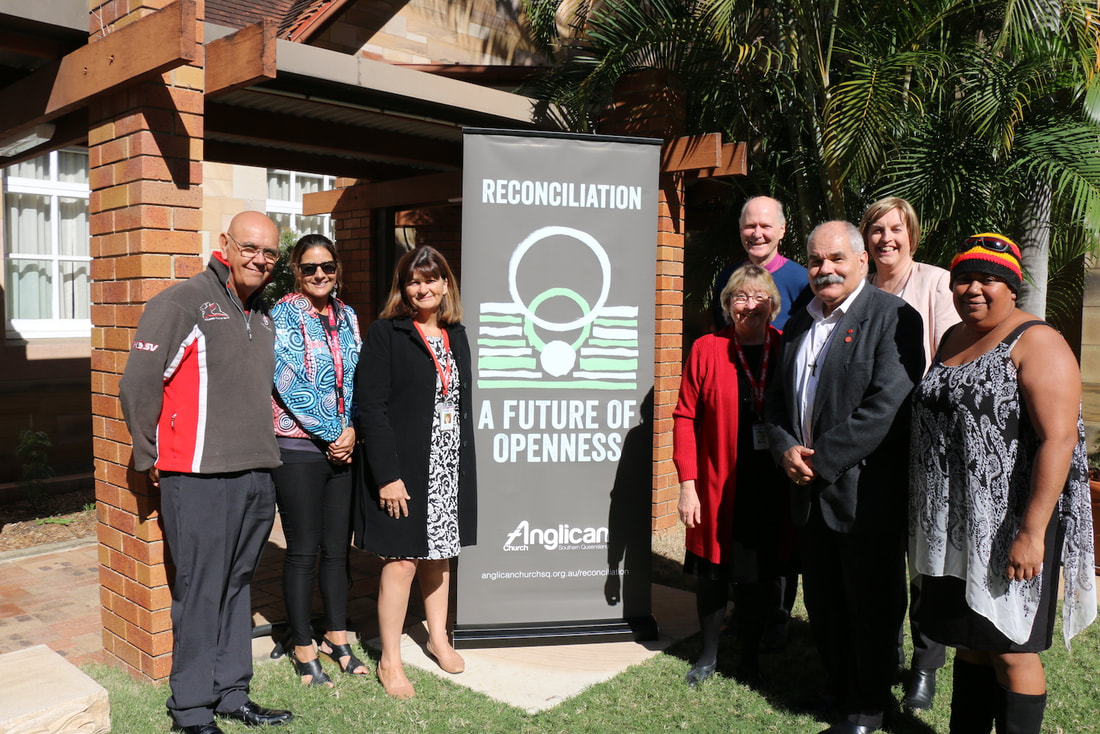 representatives of different parts of the ACSQ family at the keynote recent diocesan RAP gathering in Reconciliation Week 2018 representatives of different parts of the ACSQ family at the keynote recent diocesan RAP gathering in Reconciliation Week 2018 One more step along the road we go. For it is 6 years, almost to the day, since I successfully proposed a diocesan Synod motion for the Anglican Church Southern Queensland to explore a Reconciliation Action Plan (RAP), inspired by the work done by the Toowoomba Catholic diocese. I was reminded of this this afternoon as I took part in filming Reconciliation stories with Anglicare Southern Queensland and other diocesan colleagues as part of a new and developing Anglicare Reconciliation project. It has certainly been a sometimes frustrating, but also, above all, deeply enriching journey for me personally. For - from Cunnamulla to Buderim, through Toowoomba, the Gold Coast, and Brisbane - I have walked, yarned and worked with all kinds of people, from all kinds of different spaces and with all kinds of different stories. So it was lovely to share today in bringing some of this together, in immediate advance of NAIDOC Week, in order to enable fresh steps ahead with many more people. The RAP, is, and always was and will be, an ambitious project - seeking to work together over such a large and diverse area, with all sections of the diocesan family - and there is so much more to do, but today was an example of how rewarding this can be. |
AuthorJo Inkpin is an Anglican priest serving as Minister of Pitt St Uniting Church in Sydney, a trans woman, theologian & justice activist. These are some of my reflections on life, spirit, and the search for peace, justice & sustainable creation. Archives
July 2024
Categories
All
|

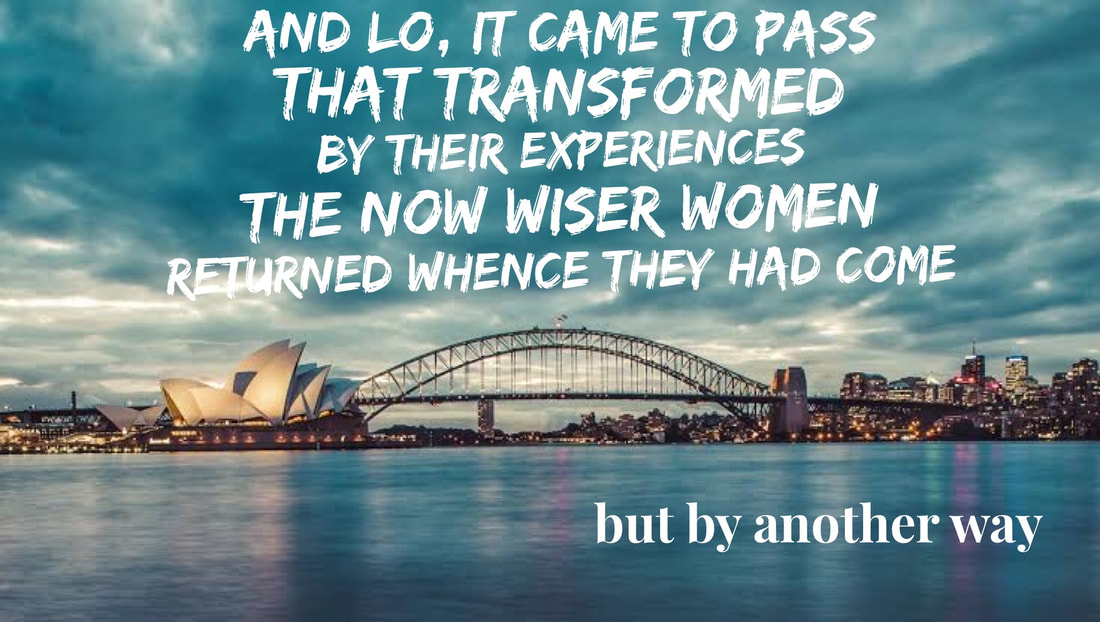
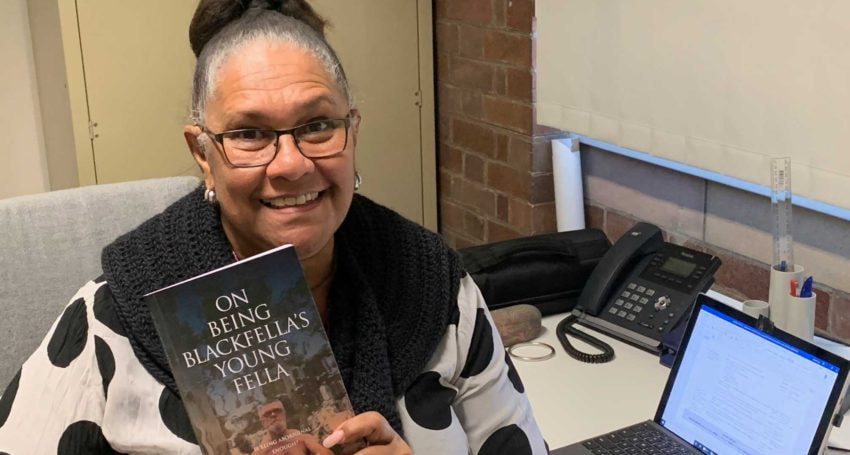
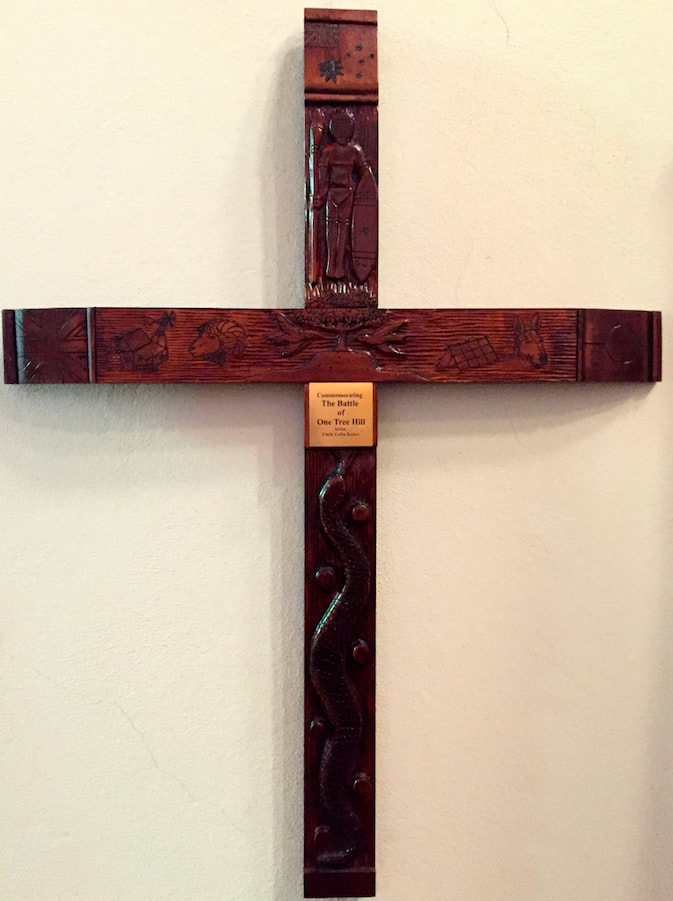
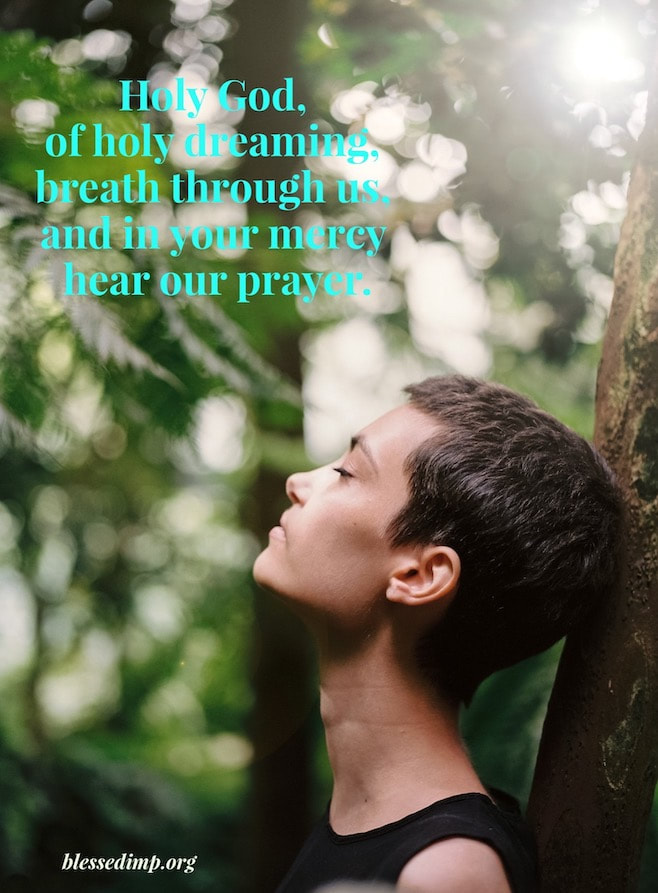
 RSS Feed
RSS Feed